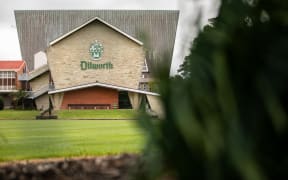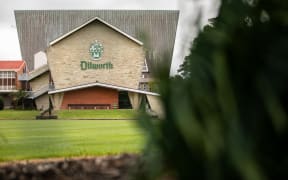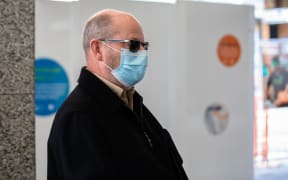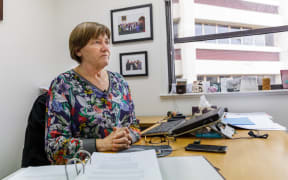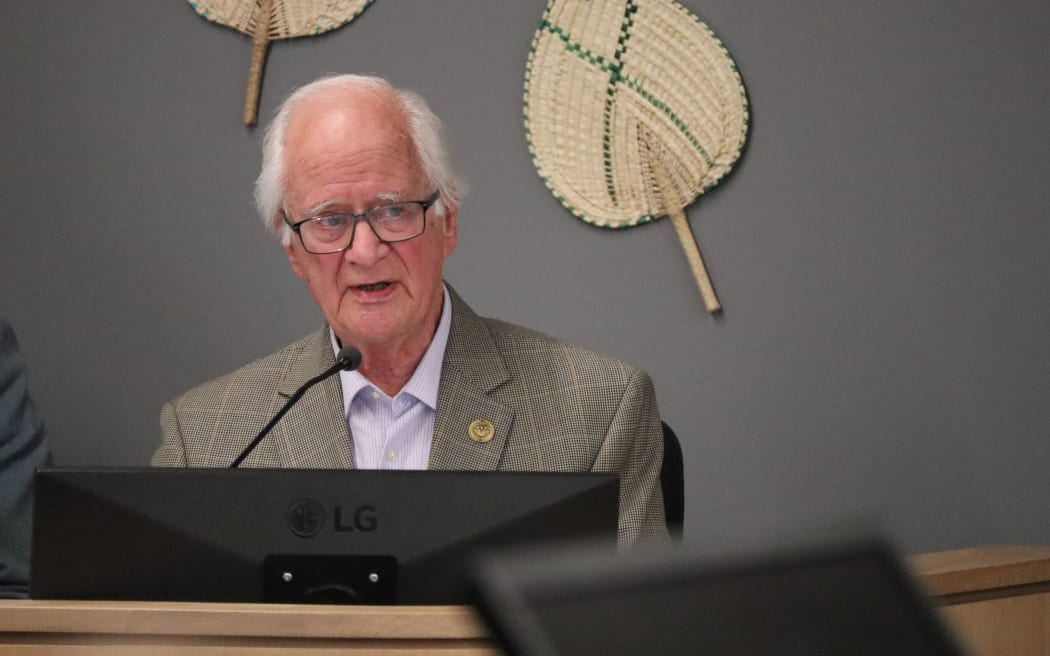
Dilworth School former headmaster Murray Wilton speaking at the Royal Commission of Inquiry into Abuse in Care. Photo: Supplied / Royal Commission of Inquiry into Abuse in Care
A former headmaster of Dilworth School says there was absolutely no cover-up by the school of allegations of sexual abuse while he was in charge.
Abuse at the Auckland boarding school has come under the spotlight at the Royal Commission of Inquiry into Abuse in Care.
Eleven men from the school have been convicted on historical sexual abuse charges, after 139 complaints were received by police.
Murray Wilton, who was the headmaster from 1979 to 1997, offered those who suffered abuse under his watch, at the hands of staff who he thought were trusted colleagues, a personal apology.
"It was abominable dereliction of duty by those men in an unforgivable betrayal of trust. They were wolves in sheep's clothing and they deceived everyone."
Dr Wilton said he accepted the genuine nature of complaints made by abuse survivors.
"It happened, with that of huge regret, I have no doubt."
He did not condone abuse in any form, he said.
"I dealt with what I knew about at the time, and what I believed at the time was an appropriate way. No doubt in some aspects Dilworth and as its headmaster could have done better."
Dr Wilton said mistakes were made, because the incidents of abuse reported to him were not fully and properly investigated.
"I fully accept [that] had the complaints about McIntosh, Wynyard, Cave and Wilson been fully investigated by appropriate experts, their other abuse may well have been revealed then," he said.
"Possibly the abuse perpetrated by Harlow and Brown may also have come to light as a result of investigation into abuse by these other staff."
There are 130 Dilworth abuse survivors taking part in a class action.
Its lawyer, Karl van der Plas, said the action alleged the widespread institutional sexual abuse of vulnerable students breached the Human Rights Act and the action sought to hold Dilworth accountable.
The school was entrusted with the guardianship of the students in its care, van der Plas said.
"Instead, from at least the 1960s, a culture of violence, fear, and silence developed in the school, in which this abuse occurred.
"Despite many brave boys complaining, Dilworth suppressed knowledge of the abuse, quietly moved on perpetrators, did not investigate, alert parents or authorities, and sought name suppression when offenders were brought before the courts. Regrettably, this power imbalance is still present today."
He asked the Royal Commission to ponder one important point.
"How many vulnerable boys could have been spared and how many decades of abuse could have been prevented had Dilwortth acted appropriately on numerous occasions?"
The lawyer for Dilworth School, Andrew Barker, said the need to confront the history of abuse in the school had been one of the greatest challenges it had ever faced.
"The school was established to give disadvantaged young men opportunities in lives they otherwise may not have had.
"The fact that so many of these students suffered abuse while they were in their care reflects a failure of Dilworth in its core mission, to provide them with a safe and supportive environment in which they can thrive."
Current Dilworth Board chair Aaron Snodgrass will give evidence to the inquiry on Thursday morning and he will acknowledge the harm done to survivors.

